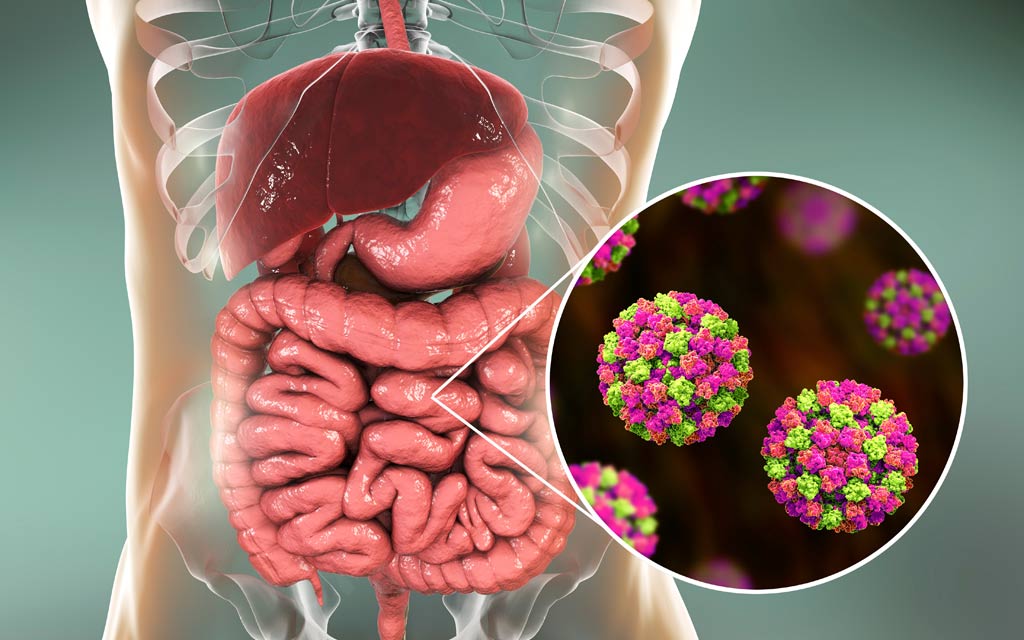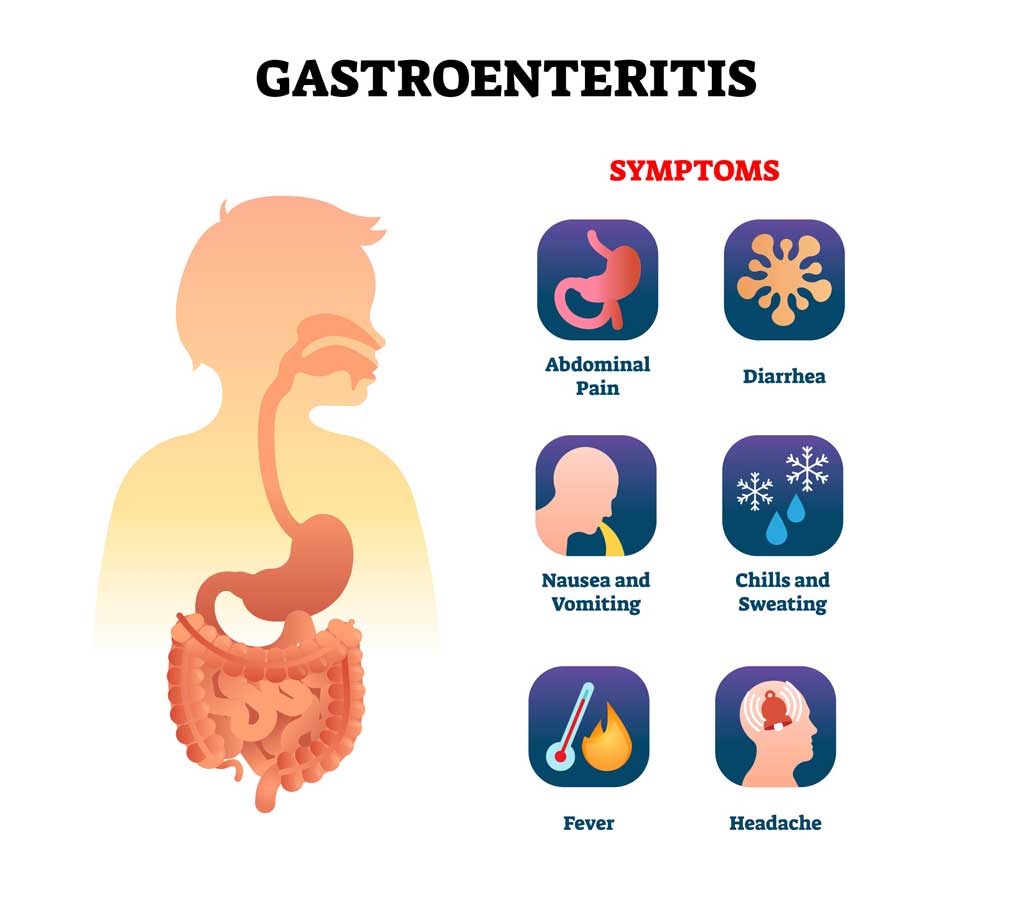You may hear norovirus illness called “food poisoning” or “stomach flu.” It is true that food poisoning can be caused by noroviruses. But, other germs and chemicals can also cause food poisoning.

About Norovirus
Norovirus illness is not related to the flu, which is a respiratory illness caused by influenza virus. Norovirus outbreaks occur throughout the year. But, over 80% of the outbreaks occur from November to April.
Outbreaks of norovirus illness occur in nursing homes, hospitals, restaurants, cruise ships, schools, banquet halls, summer camps, and even at family dinners. These are all places where people often eat food handled or prepared by others.
Norovirus is the leading cause of illness and outbreaks from contaminated food in the United States. Most of these outbreaks occur in the food service settings like restaurants. Infected food workers are frequently the source of the outbreaks, often by touching ready-to-eat foods, such as raw fruits and vegetables, with their bare hands before serving them. However, any food served raw or handled after being cooked can get contaminated with norovirus.
Norovirus outbreaks can also occur from foods, such as oysters, fruits, and vegetables, that are contaminated at their source.
- HACCP Training for Retail Establishments - 16hrs: $125.00
- HACCP Training for School Districts - 4hrs: $50.00
- HACCP Training for Seafood - 1hr: $75.00
- Food Manager Training & ANSI Certification - 8hrs: $99.00
- Food Handler Training - 1.5hrs: $7.00
- Enter Promo "train10off" at Checkout
Norovirus Symptoms
The most common symptoms for Norovirus illness are:
- diarrhea
- vomting
- nausea
- stomach pain
Other symptoms include:
- fever
- headache
- body aches
You can also get dehydrated if you are not able to drink enough liquids. You may urinate less, have a dry mouth and throat, and feel dizzy.

Norovirus and Working With Food
Norovirus is the leading cause of disease outbreaks from contaminated food in the United States.
Where do norovirus outbreaks from food contamination happen?
- Restaurant: 64%
- Catering or Banquet facility: 17%
- Private Residence: 4%
- Health Care Facilities: 1%
- Schools and Daycare: 1%
- Other/multiple: 13%

Norovirus and Food Service Workers
Foods contaminated with norovirus can make people sick and norovirus is the leading cause of illness and outbreaks from contaminated food in the United States. The virus can easily contaminate food because it is very tiny and infective. It only takes a very small amount of virus particles (as few as 18) to make someone sick.
Food can get contaminated with norovirus when:
- infected people who have stool or vomit on their hands touch the food,
- it is placed on counters or surfaces that have infectious stool or vomit on them, or
- tiny drops of vomit from an infected person spray through the air and land on the food.
Foods can also be contaminated at their source. For example:
- oysters that are harvested from contaminated water, or
- fruit and vegetables that are contaminated in the field.
If you work with food when you have norovirus illness, you can spread the virus to others. You can easily contaminate food and drinks that you touch with bare hands. People who consume the food or drinks can get norovirus and become sick. This can cause an outbreak.
Food workers can follow some simple tips to prevent norovirus from spreading:
- Avoid preparing food for others while you are sick and for at least 48 hours after symptoms stop
- Wash your hands carefully and often with soap and water
- Rinse fruits and vegetables and cook shellfish thoroughly
- Clean and sanitize kitchen utensils, counters, and surfaces routinely
- Wash table linens, napkins, and other laundry thoroughly
Resources
- CDC Vital Signs — Preventing Norovirus Outbreaks, Food Service has a Key Role
- Help Prevent the Spread of Norovirus (“Stomach Bug”), poster in English and Spanish from Somerset (NJ) County, Department of Health, NEHA, Water Quality & Health Council, and American Chemistry Council
- Clean-up and Disinfection for Norovirus (“Stomach Bug”), poster in English and Spanish from Somerset (NJ) County, Department of Health, NEHA, Water Quality & Health Council, and American Chemistry Council
- Norovirus Illness: Key Facts[2 pages]
- Norovirus: Facts for Food Workers[2 pages]
- FDA Food Code
- FDA Retail Food Protection: Employee Health and Personal Hygiene Handbook
